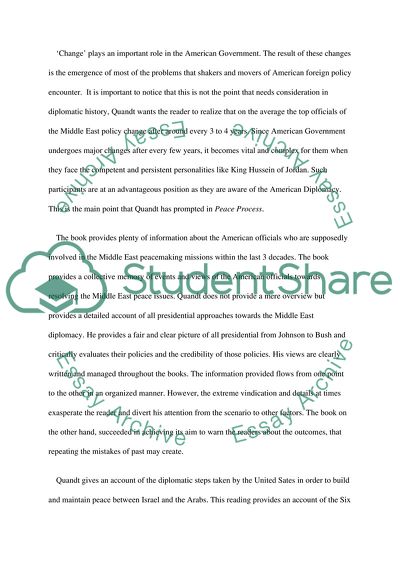Cite this document
(“Peace Process: American Diplomacy and the Arab-Israeli Conflict since Book Report/Review”, n.d.)
Retrieved from https://studentshare.org/history/1568766-middle-east-politics
Retrieved from https://studentshare.org/history/1568766-middle-east-politics
(Peace Process: American Diplomacy and the Arab-Israeli Conflict since Book Report/Review)
https://studentshare.org/history/1568766-middle-east-politics.
https://studentshare.org/history/1568766-middle-east-politics.
“Peace Process: American Diplomacy and the Arab-Israeli Conflict since Book Report/Review”, n.d. https://studentshare.org/history/1568766-middle-east-politics.


